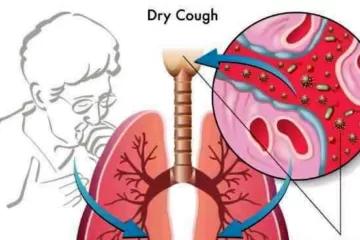Step into the realm of the menstrual cycle, a natural phase that accompanies a woman’s life, bringing along discomfort and pain during menstruation. Rest assured, you are not alone in this experience of menstrual pains, medically known as dysmenorrhea, as it affects numerous women with varying intensity levels. But worry not! We are here to guide you through this journey with ease and grace. Within this comprehensive guide, we will delve into the intricacies of managing abdominal pain and coping with your period days, providing you with effective and friendly tips to ensure your menstrual cycle becomes smoother and more comfortable. So, let us embark together on this expedition and uncover the secrets to conquering those pesky menstrual blues!
Understanding Menstrual Pain
Menstrual pain, scientifically known as dysmenorrhea, is a common concern among women during their menstrual cycles. It occurs naturally as the uterus contracts to shed its inner lining during menstruation. These contractions are triggered by hormone-like substances called prostaglandins, which cause the uterine muscles to tighten and contract, leading to discomfort and pain.
There are two types of dysmenorrhea: primary and secondary. Primary dysmenorrhea, the more prevalent type, typically begins one to two years after a woman starts menstruating. It is not associated with any underlying medical condition and is believed to be linked to higher levels of prostaglandins in the body. In contrast, secondary dysmenorrhea is less common and is usually caused by an underlying medical condition, such as endometriosis, pelvic inflammatory disease (PID), or uterine fibroids. This type of menstrual pain often starts later in life and may be accompanied by other symptoms like irregular periods or excessive bleeding.
Apart from abdominal pain, dysmenorrhea may cause other symptoms such as lower back pain, headache, nausea, and even digestive disturbances like diarrhea. Emotional symptoms like mood swings, irritability, and fatigue may also accompany menstrual pain.
While menstrual pain is a normal part of the menstrual cycle for most women, it’s crucial to distinguish between typical discomfort and pain that could indicate an underlying health issue. If the pain is severe, persistent, or accompanied by other unusual symptoms, seeking medical advice is recommended to rule out potential medical conditions and explore suitable treatment options.
Reducing Abdomen Pain During Menstrual Cycle
Menstrual pain, commonly known as dysmenorrhea, can be uncomfortable and disruptive during a woman’s menstrual cycle. However, there are several effective methods to alleviate abdominal pain and make this time of the month more manageable. Let’s delve into the details of these techniques:
Embracing Heat Therapy
Heat therapy is a simple and soothing way to relieve menstrual cramps. By applying a heating pad or a warm water bottle to the lower abdomen, blood flow increases to the area, relaxing the uterine muscles and reducing the intensity of cramps. Additionally, warm baths can provide relief and promote relaxation. It’s important to use a moderate heat setting and place a cloth between the heating pad and your skin to avoid burns.
Utilizing Over-the-Counter Pain Relievers
Nonsteroidal anti-inflammatory drugs (NSAIDs), such as ibuprofen or naproxen, can effectively reduce menstrual pain and inflammation. These medications work by inhibiting the production of prostaglandins, the hormone-like substances that trigger uterine contractions and pain. Remember to follow the recommended dosage and consult your healthcare provider before taking any medication, especially if you have underlying health conditions or are on other medications.
Engaging in Gentle Exercise
Participating in light physical activities can be beneficial in managing menstrual pain. Gentle exercises like walking, cycling, or practicing yoga can release endorphins, which act as natural painkillers and also help improve mood. Exercise can further reduce stress and tension, which may contribute to worsening menstrual pain. However, it’s advisable to avoid intense workouts during this time, as they might exacerbate discomfort.
Incorporating Herbal Teas
Herbal teas have been utilized for centuries to ease menstrual discomfort. Chamomile tea, known for its anti-inflammatory properties, can soothe muscle contractions and cramps. Similarly, ginger tea is an excellent option as it helps reduce inflammation and relaxes the muscles. Sipping on these warm herbal teas throughout the day can provide relief and a sense of comfort.
Making Dietary Changes
Making wise dietary choices can positively impact menstrual pain. During your period, opt for a balanced diet that includes fruits, vegetables, whole grains, and lean proteins. Reducing the intake of foods high in salt, sugar, and caffeine can help alleviate bloating and inflammation. Staying well-hydrated is also essential, as it aids in flushing out toxins and reduces water retention.
Practicing Relaxation Techniques
Incorporating relaxation techniques can significantly reduce stress and tension, which may intensify menstrual pain. Engaging in deep breathing exercises, meditation, or taking warm baths can promote relaxation and comfort during your period. Stress reduction can further help regulate hormonal fluctuations and alleviate abdominal discomfort.
By integrating these strategies into your menstrual routine, you can effectively manage and reduce abdominal pain. It’s important to remember that every woman’s experience with menstrual pain is unique, so exploring various approaches and finding what works best for you is key. If you find that your menstrual pain is severe or disrupts your daily life, seeking guidance from a healthcare professional is recommended to ensure your well-being and find personalized solutions.
Girl tips for period
Here are some helpful tips for managing your period: Every woman’s period is unique, and what works for one person may not work for another. It’s essential to listen to your body and find what helps you feel most comfortable and supported during your menstrual cycle. Don’t hesitate to reach out to friends, family, or healthcare providers if you have any questions or need additional support.
- Track Your Menstrual Cycle: Keep track of your menstrual cycle by marking the start and end dates of your period on a calendar or using period tracking apps. This will help you anticipate when your next period is due and be prepared.
- Stay Prepared with Supplies: Always keep a stash of menstrual products, such as pads, tampons, or menstrual cups, in your bag or at home so that you’re ready when your period arrives.
- Comfortable Clothing: Wear comfortable and breathable clothing during your period, especially if you experience bloating or discomfort. Loose-fitting clothes can help you feel more at ease.
- Maintain Good Hygiene: Change your menstrual products regularly to maintain good hygiene and prevent odor. Wash your hands before and after changing your pads or tampons.
- Stay Hydrated: Drink plenty of water during your period to stay hydrated and reduce water retention, which can contribute to bloating.
- Exercise: Engage in light exercises like walking, yoga, or swimming to alleviate cramps and boost your mood through the release of endorphins.
- Heat Therapy: Apply a heating pad or warm water bottle to your lower abdomen to soothe menstrual cramps and relax your muscles.
- Healthy Diet: Consume a balanced diet rich in fruits, vegetables, and whole grains to support your overall health during your period.
- Avoid Caffeine and Salt: Limit your intake of caffeine and salty foods, as they can worsen bloating and water retention.
- Pamper Yourself: Treat yourself with self-care activities, such as taking warm baths, reading, or watching your favorite movies to help you relax during your period.
- Avoid Stress: Try to minimize stress during your period, as it can exacerbate symptoms. Practice relaxation techniques like deep breathing or meditation to reduce stress.
- Get Adequate Rest: Ensure you get enough sleep during your period to support your body’s natural healing and recovery process.
- Know When to Seek Help: If you experience severe menstrual pain, unusually heavy bleeding, or any other concerning symptoms, consult a healthcare professional for proper evaluation and advice.
How to relieve period cramps in bed
- Heat Therapy: Place a heating pad or warm water bottle on your lower abdomen or lower back. The heat helps relax the uterine muscles and reduce the intensity of cramps.
- Stretching: Gentle stretching exercises can help alleviate tension and improve blood flow to the pelvic region. Try stretching your legs, back, and hips while lying in bed.
- Positioning: Find a comfortable position that eases the pressure on your abdomen. You can try lying on your side with your knees bent or placing a pillow under your knees for support.
- Massaging: Gently massage your lower abdomen in circular motions with your fingertips. This can help ease muscle tension and provide relief from cramps.
- Herbal Teas: Sip on herbal teas like chamomile, ginger, or peppermint tea. These teas have anti-inflammatory properties that can soothe menstrual cramps.
- Relaxation Techniques: Practice deep breathing, meditation, or progressive muscle relaxation to reduce stress and promote relaxation, which can help ease cramps.
- Pain Relievers: If the cramps are particularly painful, you can take over-the-counter pain relievers like ibuprofen or acetaminophen. Always follow the recommended dosage and consult your healthcare provider if needed.
- Stay Hydrated: Drink plenty of water to stay hydrated, as dehydration can worsen cramps and bloating.
- Stay Warm: Keep yourself warm with blankets or a cozy comforter. Being warm can help relax your muscles and ease discomfort.
- Avoid Caffeine and Salty Foods: These can contribute to water retention and worsen bloating and cramps. Opt for herbal teas or decaffeinated options instead.
- Get Adequate Rest: Make sure you get enough rest and sleep to support your body’s natural healing and recovery process.
- Use Extra Pillows: If needed, prop yourself up with extra pillows to find a comfortable and supportive position.
- Visual Distraction: Distract yourself from the discomfort by watching your favorite TV show, reading a book, or listening to calming music.
- Stay Mindful of Your Body: Listen to your body and adjust your position or activities accordingly to find what provides the most relief.
period cramps are a natural part of the menstrual cycle, and every woman’s experience is different. If the cramps are severe, persistent, or accompanied by other concerning symptoms, it’s essential to consult a healthcare provider for proper evaluation and personalized advice.
Making Your Period Days More Manageable
Track Your Cycle:
Understanding your menstrual cycle can be empowering. Use a period tracking app or calendar to keep track of your cycle, which can help you anticipate when your period is due and prepare accordingly.
Have a Period Kit:
Create a period kit that includes pads, tampons, pain relievers, and any other essentials you might need during your period. Having everything you need readily available will make your period days more manageable and less stressful.
Stay Hydrated:
Drinking plenty of water during your period is essential. Proper hydration can help reduce bloating and water retention, making you feel more comfortable.
Get Adequate Rest:
Make sure to get enough rest during your period. Fatigue and lack of sleep can worsen menstrual pain and discomfort.
Understanding the Causes of Menstrual Pains
Hormonal Imbalance:
Fluctuations in estrogen and progesterone levels can lead to more intense contractions of the uterus, causing menstrual pain.
Prostaglandins:
The release of prostaglandins during menstruation can lead to stronger contractions of the uterus, resulting in cramps.
Underlying Conditions:
In some cases, menstrual pain may be a symptom of underlying conditions such as endometriosis or uterine fibroids. If you experience severe or persistent pain, consult a healthcare professional for a proper diagnosis.
Lifestyle Factors:
Stress, lack of exercise, and an unhealthy diet can exacerbate menstrual pain.
How to stop period pain forever
I must clarify that there is no surefire way to stop period pain forever as it is a natural part of the menstrual cycle for most women. Menstrual pain, also known as dysmenorrhea, occurs due to the contractions of the uterus as it sheds its lining during menstruation. However, there are various approaches and treatments that can help manage and reduce period pain significantly. Here are some options to consider:
- Hormonal Birth Control: Certain forms of hormonal birth control, such as birth control pills, patches, or intrauterine devices (IUDs), can help regulate menstrual cycles and reduce the intensity of period pain.
- Continuous Birth Control Use: Some women opt for continuous use of hormonal birth control, skipping the placebo pills, to have fewer or no periods, which may reduce period pain.
- Lifestyle Changes: Regular exercise, maintaining a balanced diet, staying hydrated, and managing stress can positively impact menstrual symptoms, including period pain.
- Over-the-Counter Pain Relievers: Nonsteroidal anti-inflammatory drugs (NSAIDs) like ibuprofen or naproxen can provide temporary relief from menstrual cramps.
- Prescription Medications: In more severe cases, a healthcare provider may prescribe stronger pain medications or medications to manage hormonal imbalances contributing to period pain.
- Heating Pads or Warm Compresses: Applying heat to the lower abdomen can help relax uterine muscles and alleviate cramps.
- Herbal Remedies: Some women find relief from period pain by using certain herbal remedies, such as ginger, chamomile, or raspberry leaf tea.
- Acupuncture: Acupuncture, a traditional Chinese medicine practice, has been reported to offer relief from menstrual pain for some women.
- Transcutaneous Electrical Nerve Stimulation (TENS): TENS is a therapy that uses low-voltage electrical currents to alleviate pain by stimulating nerves.
It’s essential to remember that individual experiences with period pain can vary, and what works for one person may not work for another. If period pain is significantly affecting your quality of life, it is crucial to discuss your symptoms with a healthcare provider. They can help identify any underlying issues, recommend appropriate treatments, and guide you in finding the best approach to manage your menstrual pain effectively.
Dealing with menstrual pain is a common challenge for many women, but it doesn’t have to be overwhelming. By understanding the causes of menstrual pain and adopting effective strategies to alleviate it, you can make your period days more manageable and less painful. Remember to listen to your body, practice self-care, and consult a healthcare provider if you have concerns about the severity of your menstrual pain. With a proactive approach, you can navigate through your menstrual cycle with greater ease and comfort.




